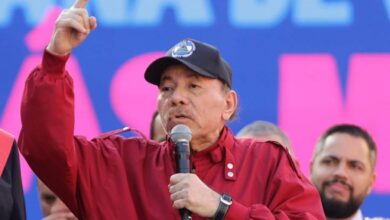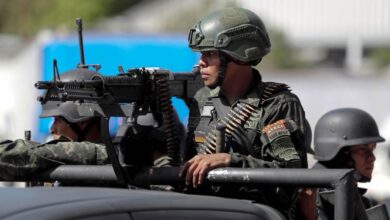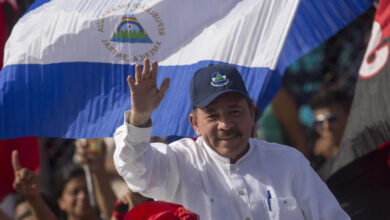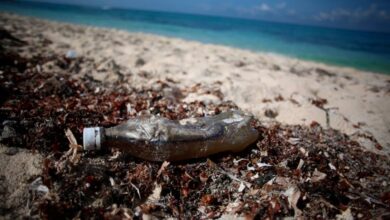Nicaragua: Who is Left Against Ortega?
These are the candidates that remain to challenge Daniel Ortega for the presidency.

What candidates are left to compete in the November 7 elections? Photo: Wikimedia- NGO Nicaragua
LatiAmerican Post | Jorge Francisco Vuelvas Lomeli
Listen to this article
Leer en español: Nicaragua: Who is left against Ortega?
Daniel Ortega was not enough to squander public money to meet family whims, nor did he hesitate to appoint his wife as president. Now he imprisoned the four opposition leaders who could snatch the electoral victory from him. But how do we get to this stage? What candidates are left to compete in the November 7 elections?
Also read: What Is Happening in Nicaragua?
Between Putin and the Guillotine
The mechanism of action of President Daniel Ortega is not new, since he came to power it has been characterized by taking over the institutions, buying wills in the legislative branch, acquiring media companies to promote his image, and for three years he has violently repressed protesters who spoke out against the decisions he has made throughout his tenure.
But this time the regulatory attack has two names: the Putin Law and the Guillotine Law. The first in mention, also known as the Foreign Agents Regulation Law, was enacted in October 2020 and had the real objective of containing the actions of non-governmental organizations, financed by international funds and countries of the international community.
The foregoing under the argument of national security and the best interests of the Nicaraguan homeland. In practice, they ended up canceling the legal personality of organizations that fought and raised their voices against the human rights violations that occur daily in that country. Various nations reacted to the Putin Law, but the Ortega regime continued to act with impunity.
On the other hand, Law 1055, also known as the "Guillotine Law" has generated even more controversy within this country, since with this regulation the government can accuse any citizen of "betraying the homeland", annulling their Possibilities of standing as a candidate for a popularly elected office.
Both laws complicate the panorama for a transition of power since, in addition to them, the domain of being the supreme head of the Nicaraguan police and army converges around Ortega; Likewise, there is no real opposition within the legislative and judicial powers, since during his four terms he has inundated these entities with people related to his government policies.
Se han propuesto dejar sin cabeza a la oposición… ¿Qué te pareció la caricatura de @pxmolina para hoy? ➡️ https://t.co/qKHkHdocEm pic.twitter.com/UkJm0xrj9B
— Confidencial Nicaragua (@confidencial_ni) June 13, 2021
Arrest of opponents
Ortega's low popularity and increased sympathies outside of Sandinismo made the international community think that this would be Ortega's last term. However, as an unexpected move, the President of Nicaragua used the two laws mentioned above to imprison the main opposition leaders who were risking the political future of the country with him.
So far, 19 opponents in Managua have been jailed in what many call the Alfarero Novel. Among them, 5 presidential candidates who oppose President Ortega: Cristiana Chamorro (under house arrest), Arturo Cruz, Félix Maradiaga, Juan Sebastián Chamorro and Miguel Mora.
Cristiana Chamorro is best known for being the daughter of the former president Violeta Barrios de Chamorro, who was president of Nicaragua from 1990 to 1997; She is a journalist by profession and nominated for the presidential race thanks to the Citizens for Freedom party.
Arturo Cruz was nominated by the Citizen Alliance Party, he is a diplomat and historian, and on June 7 he was jailed for three months under the Guillotine Law argument.
The former Secretary-General of the Ministry of Defense, Félix Maradiaga, was nominated as an opposition opponent by the Blue and White National Unit (UNAB), but after his arrest, his family and lawyers have not been able to contact him.
The candidate Juan Sebastían Chamorro is an economist who is seeking the presidency of Nicaragua under the acronym of the Alianza Ciudadanos por la Libertad party. In social networks, there has been an intense campaign so that his relatives can contact him.
Please share. 20 days passed since he was kidnaped. #FreeJuanSebastianChamorro #LibertadParaLosPresosPoliticos pic.twitter.com/C8UWt52Z1c
— Juan Sebastián Chamorro (@Jschamorrog) June 28, 2021
By the Democratic Renewal Party, candidate Miguel Mora was arrested on June 20, 2020. Like the first mentioned candidate, his profession is journalism, and given the open criticism he has made of the Ortega government, he was accused of crimes against national sovereignty.
Who is left against Ortega?
But despite the fact that international arrests and convictions have flooded international newspapers in recent weeks, it is pertinent to remember that Nicaragua's presidential race continues, highlighting various political personalities who continue their candidacy despite the turmoil that is experienced within your nation.
Among the main opponents is María Eugenia Alonso, nominated by the Civic Alliance for National Unity (ACUN), in her own person she lived through the police repression of the Ortega government and has expressed her intention to pacify the country.
George Henriquez Cayasso also stands out, who would be the first Afro-descendant to participate for that country's presidential candidate. She has a master's degree in ethnicity and gender.
Medardo Mairena Sequeira is a peasant leader who is also a pre-candidate, his agenda would be based more on a local approach and broad support for the countryside.
Finally, a moderate opponent of Ortega and a former military man is still in the presidential race: Luis Fley. If he became president, he expressed that he would not seek revenge or revenge against any Sandinista leader.
Although the presidential election is still 4 months away, it will be pertinent to pay attention to the development of this story, since not only the democracy of this country is at stake, but the human and universal right of freedom of expression and political freedoms that are persecuted in several countries in the region.




